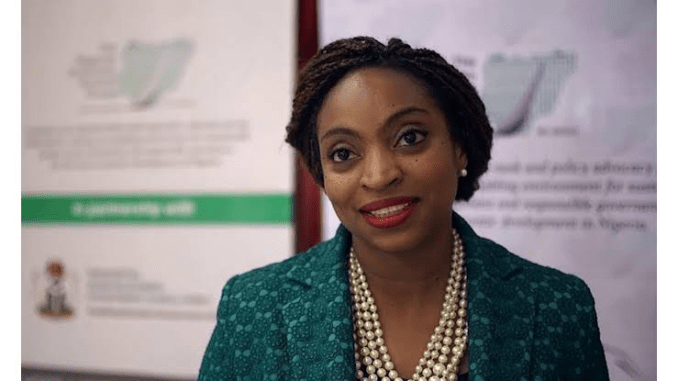
The Federal Government says it will set up a technical working group to properly review the annual dues structure for Public Interest Entities, PIEs.
Minister of Industry, Trade and Investment, Dr Jumoke Oduwole, said this on Wednesday in Abuja, at a stakeholders` engagement on the Financial Reports Council of Nigeria, FRCN, Levy.
According to Oduwole, the review will be carried out under the Financial Reporting Council Act (FRC) (Amendment) 2023.
9News Nigeria reports that the minister was responding to the Manufacturers Association of Nigeria, MAN, Nigeria Employers’ Consultative Association, NECA, the Organised Private Sector, OPS, and others’ request that the implementation of the annual levy be suspended.
According to them, the implementation of the levy will affect businesses and the economy of the country, as people will lose their jobs, thereby causing more hardship.
Oduwole, however, explained that the decision was a direct response to the concerns raised by the organised private sector and other key stakeholders.
The minister said that the review and the set-up of the technical working group should happen within the next 60 days with tangible ideas.
`Between the next 60 days, we are going to set up a technical working group comprised of FRCN and organised private sector representatives.
“Because we are a listening government. President Bola Tinubu had been briefed and wanted the private sector to be comfortable.
“We want the economy to thrive. So this is what we are going to do. We want to ensure we come up with the best fit for Nigeria.
What is clear is that they cannot pay what they used to pay. But they may not pay what they have been asked to pay,” she stressed.
Oduwole, however, reassured the stakeholders that the ministry remained committed to working closely with them to enhance business competitiveness and align with Nigeria’s broader economic transformation agenda.
“I want to thank the Nigerian private sector for their belief in the administration of President Bola Tinubu.
“I want to also thank them for believing in the reforms that have been implemented since May 2023. The ministry and the FRCN are committed to implementing the eight-point agenda.
“I want to thank all the participants and to assure Nigerians that we will get back to them in a similar transparent manner,’’ she said.
Chief Executive Officer, FRCN, Dr Rabiu Olowo, said that the 2023 amendment, according to records, was brought to reduce the size of the board to address some issues of conflict of interest.
Olowo, who opposed the proposal for the suspension, said that the amendment was brought to highly defined PIEs.
He argued that the amendment had helped to define, claim, and define public interest entities to avoid ambiguities.
It has helped to protect typical private entities from failure and to make the council more effective in discharging its mandates and to expand the enforcing powers of the council.
“The FRCN, in spirit, should be an independent regulator, robust and fair, in order to deliver on its mandate,’’ Olowo said.
FRCN was established by Act, No. 6, 2011, under the supervision of the Federal Ministry of Industry, Trade and Investment.
The FRCN is responsible for, among other things, developing and publishing accounting and financial reporting standards and other related matters in Nigeria.
The law, which amended the FRCN Act 2011, was signed into law on May 3, 2023.
It aims to enhance transparency and accountability in financial reporting and strengthen corporate governance in Nigeria.
Section 33 (1)(c) of the FRCN Act 2023 stipulates that quoted companies/PIES are to pay annual dues based on 0.002 per cent of their market capitalisation or N25 million.
